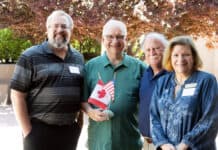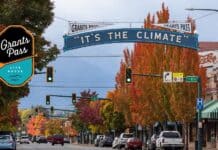This March, Sedona residents will get the chance to choose if the mayor should be elected by voters or appointed by City Council.
On Tuesday, Aug. 11, Sedona City Council voted 6-1 to ask the voters, in the March 2010 election, if they want the mayor to be appointed from within the council.
Mayor Rob Adams opposed the vote, stating that through his experience of being directly elected last year, he can see pros and cons to both.
If the ballot passes in March, there will be no direct election for mayor in 2012. Instead, the mayor would be appointed from among the seven councilors, by the councilors.
Councilman Cliff Hamilton voted in favor of letting the residents decide, but that doesn’t mean he’s in favor of it himself, he said.
“I’ll vote for it here to give voters a voice,” he said, “but I won’t vote for it on the ballot.”
Vice Mayor John Bradshaw favors council appointing the mayor since it puts more people in the running for empty council seats, he said.
According to Bradshaw, in a small town like Sedona, having a separate contest for mayor takes away from the already limited number of candidates running for council. Since councilors have to resign to run for the mayor seat, Councilwoman Pud Colquitt agreed with Bradshaw, that appointing the mayor keeps more council seats filled.
Colquitt served as an appointed mayor from 2004 to 2006. She resigned from council to run in the city’s first mayoral election and served as the city’s first directly elected mayor from 2006 to 2008. Adams is the city’s second directly elected mayor.
When the city was incorporated in 1988, the city code stated council would appoint a mayor from among its members every two years, after the council was seated following an election.
In 2004, voters approved to change the code to allow the mayor to be directly elected by the voters for two-year terms.
In 2006 and 2008, the voters have directly elected Sedona’s mayor.
Although the cost of running for mayor is excessive, and may be a detriment to possible candidates, Adams would like to give direct elections more time before the residents vote on the issue again.
In 2004, 58 percent of the voters were in favor of an elected mayor, he pointed out.
“I think the people want to have a voice in whoever their mayor is and they want that mayor to represent them,” he said.
Since the city has a weak-mayor form of government, the seat doesn’t have any real power above the six other councilors. Holding a separate election for mayor can be deceiving to the public, the councilors agreed.
“There are implied or direct expectations from the public in terms of the mayor following through with things the mayor has said during the election,” Adams said, “and being a weak mayor, you don’t have the ability to do that.”
Colquitt also wants to address the campaign expenses.
“There’s no reason an election should cost more than $20,000. There’s good people who won’t get involved because of that and that’s a shame,” she said.
Especially when candidates in towns of 50,000 people only spend $2,000 on campaigns.
“I know we’re special but we’re not that special,” Colquitt said. “We need to make it easier to get people to run for elections.”






















